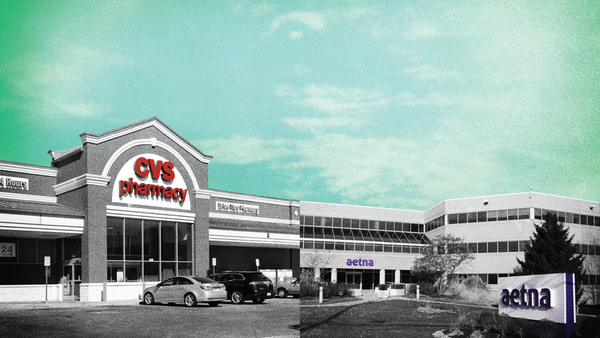 A merged CVS/Aenta could act as a "gateway to health," where consumers come as a first stop when they have health issues.
A merged CVS/Aenta could act as a "gateway to health," where consumers come as a first stop when they have health issues.
Your ZIP code can say a lot about you—not just where you live, but how you live and how healthy you might be. And that can mean more than how often you encounter the medical system or even what lurks in your genes.
Related: 5 richest, 5 poorest area codes
Recommended For You
A Washington Post report says that if Aetna chief executive Mark Bertolini has his way, the future combined CVS-Aetna conglomerate will not just know your ZIP code, but intervene in your life to make you healthier—in ways no health care company does now.
According to Bertolini, health insurance needs to take a more active role in people's lives to make sure they get, and stay, healthier, instead of "acting only as a payment system for procedures and drugs when people are ill…" He envisions the merged company instead as a "gateway to health," says the report, to which consumers come as a first stop when they have health issues.
"Pharmacists or medical professionals in a neighborhood health hub could help schedule people's appointments or focus on non-medical forms of help, such as coordinating rides, meal assistance, nutrition counseling or social supports," the report says, with wearable technologies allowing medical professionals to keep an eye on how people are doing and allow them to jump in at the first sign of trouble—say, a failure to take medications or a minor problem that could turn into a major one.
Pharmacy giant CVS would play a significant role in that intervention, thanks to its numerous brick-and-mortar outlets that place it already in plenty of neighborhoods. In the report, Bertolini says, "Part of our deal with CVS is that we can push the financing, the insurance, to the back of the building, and instead, think about this investment in the local community, given 10,000 storefronts. We could make provisions for rides by Lyft, or Meals on Wheels, or fuel assistance for food or socialization."
With numerous studies now focusing on ZIP codes and the relative health—or lack thereof—of its residents, the Big Data that results could enable the firm to understand where health care problems exist can be an entry into solving those problems.
In fact, he hypothesizes that if CVS-Aetna can partner with its patients, such problems as restricted access to care, the need for prior authorizations and the shift of costs onto consumers and away from the insurer could disappear.
One wonders, though, whether Americans will really let insurers get so up close and personal in every part of their lives.
© 2025 ALM Global, LLC, All Rights Reserved. Request academic re-use from www.copyright.com. All other uses, submit a request to [email protected]. For more information visit Asset & Logo Licensing.







